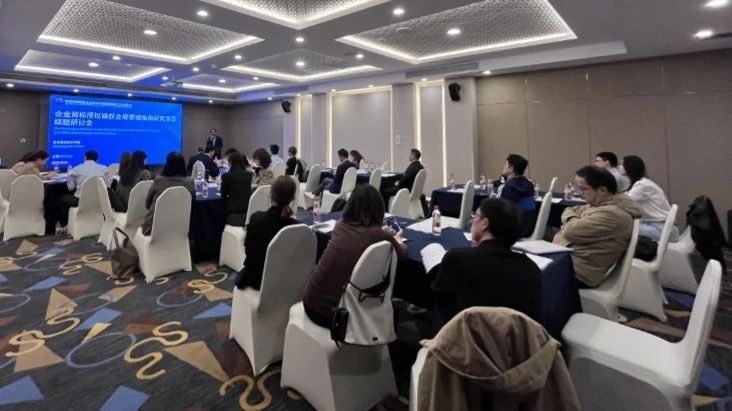On October 25, QBPC Legal Committee successfully held a concluding seminar on the Research of Corporate Trademark Granting and Affirmation Management Guidelines. Members of the project team from Beijing JUSTRA Intellectual Property Center (JUSTRA), which was the assigned party of the project, made an in-depth presentation of the report during the seminar. Yanfang WANG, Professor of the East China University of Politics and Law Intellectual Property School, Baoqing ZANG, former Deputy Secretary General of the China Trademark Association, and Ze WANG, Vice Chair of JUSTRA and former Deputy Secretary General of the China Trademark Association, provided professional comments as guest speakers on the project. Over 70 representatives attended both onsite and online.
As the host of the event, Legal Committee Chair Michael Yu elaborated on the background of the project. He said that the project had gone through the project initiation, member surveys, in-depth interviews with experts, and discussion on initial draft, which finally led to a relatively mature research report. It was aimed at systematically sorting out the corporate trademarks granting, affirmation, and other front-end trademark affairs in order to better provide detailed management guidelines for the legal practitioners engaged in trademark affairs as well as trademark rights protection, which would more effectively support the development of the business.
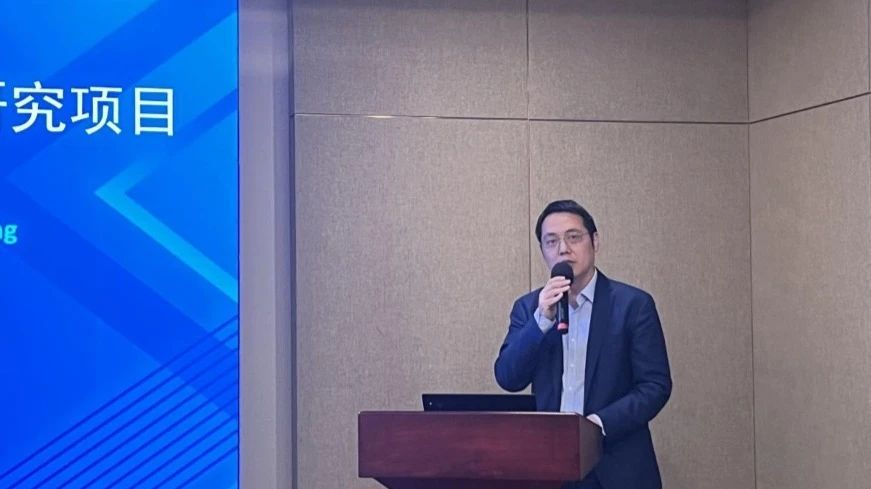
Michael Yu
While going through the guidelines, Ye CAI thought that the trademark granting and affirmation business had made significant progress in China, not only with regard to theory and legislation, but also in the aspects of efficiency and application of technology. These changes had put forward higher requirements for trademark agencies while also posing greater challenges to legal practitioners, especially those in foreign-invested companies that had understand the differences between domestic and overseas trademark businesses and communicate internally in a timely manner. The guidelines contained four parts: project background, project research content, in-house trademark management strategy, and special effects of trademark granting and affirmation cases. The guidelines also covered trademark management strategies such as trademark monitoring and stability evaluation while detailing the trademark case management process, which provided practical guidance to companies through cases and practical suggestions.
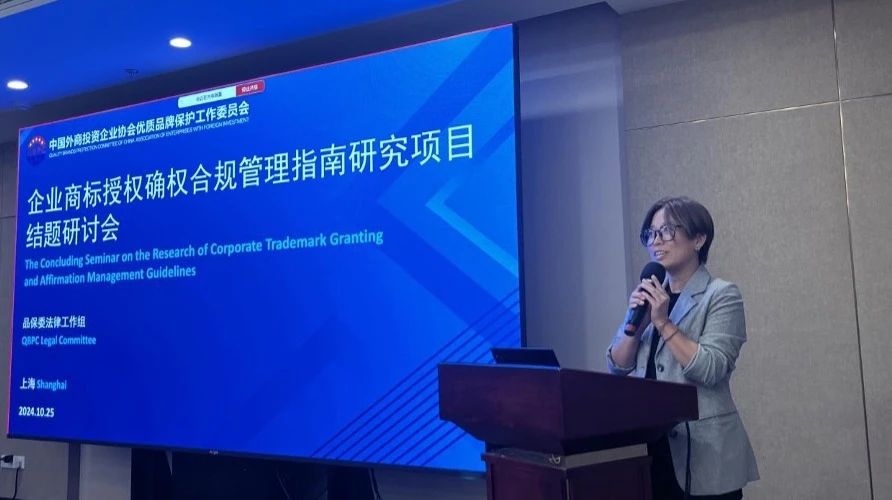
Ye CAI
Han ZHANG mainly introduced administrative litigation, focusing on reexamination rejection, invalidation cases, and cancellation of registered trademark cases (non-use of a trademark for 3 years), as well as analyzing administrative litigation trends. After sharing the differences in review rules between administrative litigation and pre-confirmation procedures, he explained the considerations of which cases could be subject to administrative litigation. Regarding the status quo of well-known trademark recognition and the administrative and civil articulation in trademark protection, he demonstrated the importance of combining administrative and civil procedures through case study, as well as the benefits of different approaches in the defense of rights.
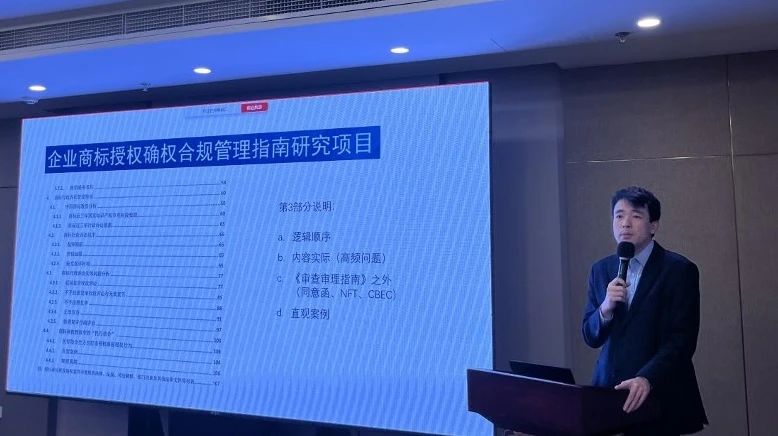
Han ZHANG
Three guest speakers also gave their comments on the research. Based on her profound legal practice experience, Yanfang WANG deeply analyzed the core issues in the practice of the Trademark Law, such as the core value of trademark use, the abuse of the absolute grounds clause, and so on, providing valuable theoretical and practical guidance for trademark protection and fully affirming the value of the research report to trademark practitioners. Baoqing ZANG applauded the report's accurate topic selection, tight logic, rich content, and great practicality as well as highlighting the importance of evidence database in solving the problem of malicious registration. At the same time, she suggested adding specific years and periodically updating the content to enhance the report’s practicability and efficacy. While providing some constructive feedback on the format and content of the report, Ze WANG expected that the project could effectively empower the daily work of QBPC member companies. He pointed out the current challenges that trademark protection faced and proposed tips for possible improvement, which provided useful thoughts for the trademark protection development.
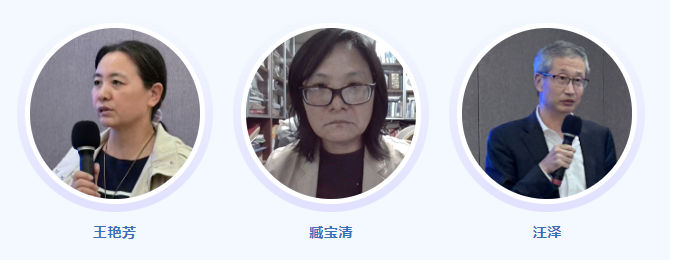
Yanfang WANG Baoqing ZANG Ze WANG
In the Q&A session, the research team responded to the questions raised by the participants, such as the consideration of decision-making factors in trademark granting and affirmation cases, the use of well-known trademarks in subsequent cases and cross-category protection, the acceptance of evidence of use in cross-border e-commerce, and the experience of protecting the abbreviation of English trademarks in malicious trademark squatting.
